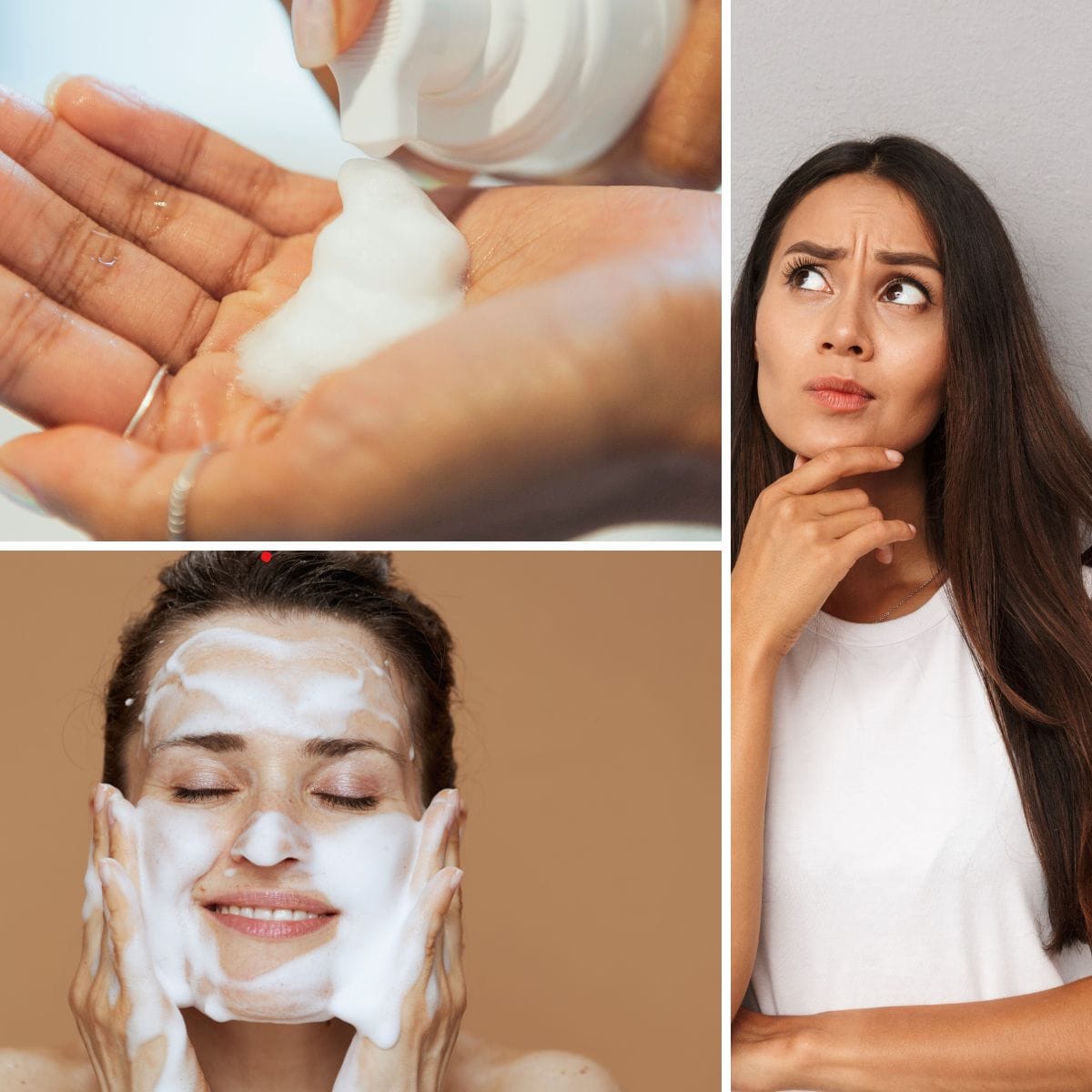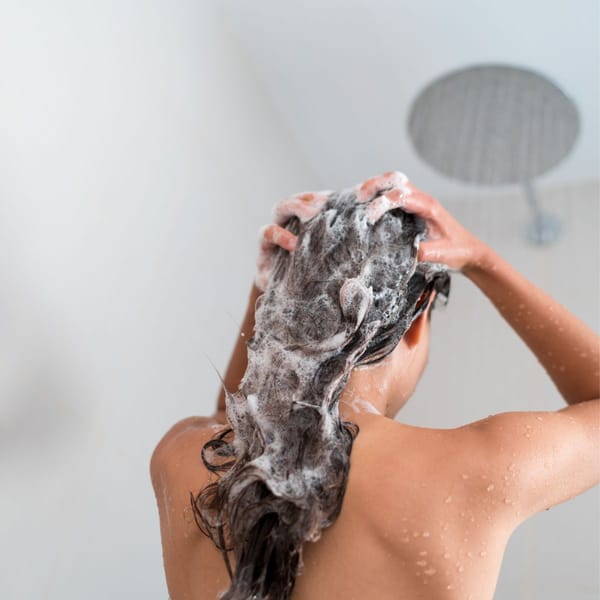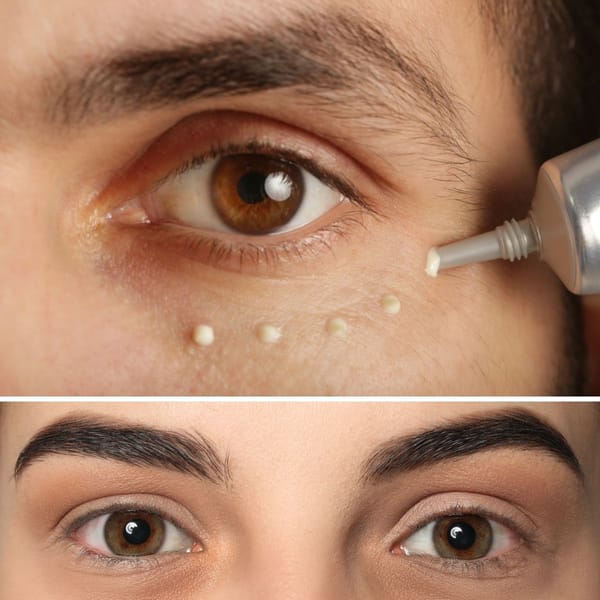Key Takeaways:
- Understand the distinct purposes of face washes and cleansers in a skincare routine.
- Learn how to choose the right product for your skin type, whether it's sensitive, oily, or acne-prone.
- Discover the role of ingredients like salicylic acid, hyaluronic acid, and benzoyl peroxide in maintaining healthy skin.
Navigating the world of skincare can be a daunting task, especially when it comes to understanding the difference between face wash and cleanser. Both are pivotal in maintaining a healthy skincare routine, yet they serve unique purposes and cater to different skin needs. Let's dive into the nuances of these skincare staples to help you make an informed decision for your glowing skin.
The Primary Purpose of Face Wash
Face washes are designed to do exactly what their name implies – wash your face. They are formulated to remove dirt, excess oil, and makeup from the skin's surface. A foaming face wash typically has a foaming action that works to deeply cleanse the pores, making it an excellent choice for those with oily skin or those who wear makeup regularly. Ingredients like salicylic acid are often found in face washes, targeting acne-prone skin by helping to unclog pores and reduce oil production.
Cleansers: Gentle and Hydrating
On the other hand, a gentle cleanser is often more hydrating and less harsh than a face wash. It's designed to cleanse the skin without stripping it of its natural oils, which is crucial for maintaining a healthy skin barrier. A hydrating cleanser might contain ingredients like hyaluronic acid, which helps to retain moisture and is ideal for those with dry or sensitive skin. Cleansers can come in various forms, including milk, gel, or cream, and may not produce a foaming action.
Identifying Your Skin Type
Knowing your skin type is essential when choosing between a face wash and a cleanser. For sensitive skin types, a gentle cleanser that doesn't cause irritation is key. If you have oily skin, a face wash with ingredients that target oil production, such as benzoyl peroxide, can be beneficial. Those with dry skin should look for hydrating ingredients that help to maintain moisture without causing dryness or flakiness.
The Role of Double Cleansing
Double cleansing is a two-step process that starts with an oil-based cleanser to remove makeup and sunscreen, followed by a water-based cleanser to cleanse the skin further. This method ensures that all traces of makeup and dirt are removed, which is especially important for those who wear makeup or have clogged pores. Double cleansing can incorporate both a face wash and a gentle cleanser to achieve a thorough clean without over-drying the skin.
Ingredients Matter
The difference between face wash and cleanser can also be seen in their ingredients. Face washes may contain stronger detergents like sodium laureth sulfate to remove dead skin cells and combat excess oil. In contrast, cleansers often feature hydrating ingredients and gentle cleansing agents that provide a mild clean without disrupting the skin's natural balance.
The Impact on Acne-Prone Skin
For acne-prone skin, choosing the right product is crucial. A face wash with salicylic acid can help to remove dead skin cells and prevent future breakouts. However, it's important not to over-cleanse, as this can lead to irritation and worsen acne. A non-comedogenic cleanser that doesn't clog pores can be a safer option for sensitive skin types.
Makeup Removal
When it comes to removing makeup, a cleanser is often the first step, especially if you double cleanse. It helps to dissolve makeup and sunscreen, making it easier to wash away with a face wash afterward. For heavy makeup, a cleanser specifically designed to remove makeup may be necessary to ensure that all products are fully removed, preventing clogged pores and breakouts.
Morning vs. Evening Routines
Your morning and evening skincare routines might require different products. In the morning, a gentle cleanser can be sufficient to remove any oils produced overnight. In the evening, a face wash or double cleanse may be necessary to remove the day's buildup of dirt, oil, and makeup.
The Texture and Feel
The texture of a product can also influence your choice. Gel-like cleansers are cooling and can be great for waking up the skin in the morning, while creamy cleansers provide extra moisture that might be needed in the evening. Foaming face washes give a satisfying clean feeling that many desire after a long day.
Special Considerations for Sensitive Skin
For those with sensitive skin, it's important to choose products that minimize the risk of irritation. Look for cleansers and face washes that are free from harsh chemicals, fragrances, and alcohol. Ingredients like aloe vera and chamomile can provide gentle cleansing while soothing the skin.
The Verdict: Face Wash vs. Cleanser
Ultimately, the choice between a face wash and a cleanser depends on your individual skin needs and preferences. Both play a role in a comprehensive skincare routine, and some may find that using both at different times or for different purposes works best for their skin.
Summary
The difference between face wash and cleanser lies in their intended use, ingredients, and the type of clean they provide. Face washes are typically more suitable for oily and acne-prone skin, while cleansers are better for dry or sensitive skin. Understanding your skin type and the ingredients that work best for you is key to choosing the right product. Whether you opt for a face wash, a cleanser, or both, the goal is to maintain healthy, balanced, and glowing skin.
FAQ Section
Q: Can I use both a face wash and a cleanser in my skincare routine? A: Yes, many people do, often as part of a double cleansing process. It's important to understand your skin's needs and adjust your routine accordingly.
Q: How often should I use a face wash or cleanser? A: Generally, you should cleanse your face twice a day – in the morning and evening. However, your specific routine may vary based on your skin type and the products you use.
Q: Are face washes or cleansers better for removing makeup? A: Cleansers, especially oil-based ones, are typically better for removing makeup as they can dissolve makeup and sunscreen more effectively. A face wash can then be used to cleanse the skin further.







